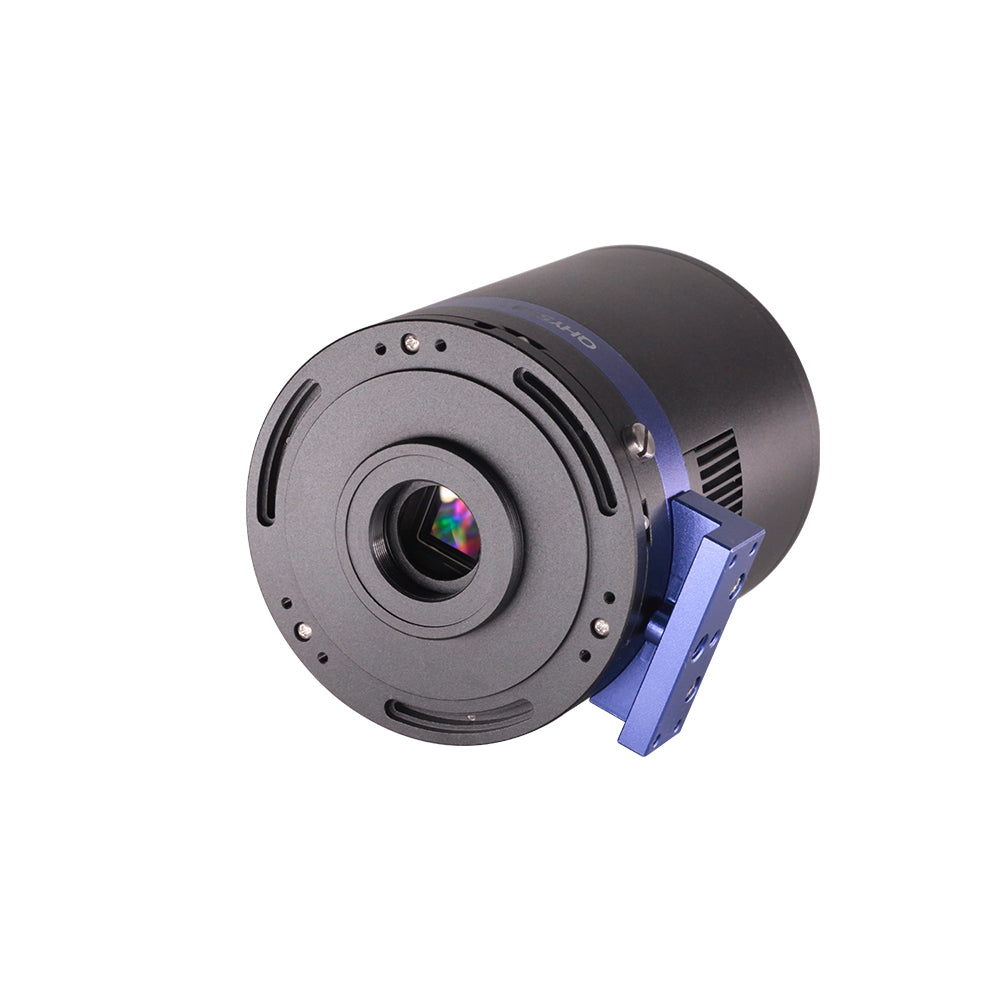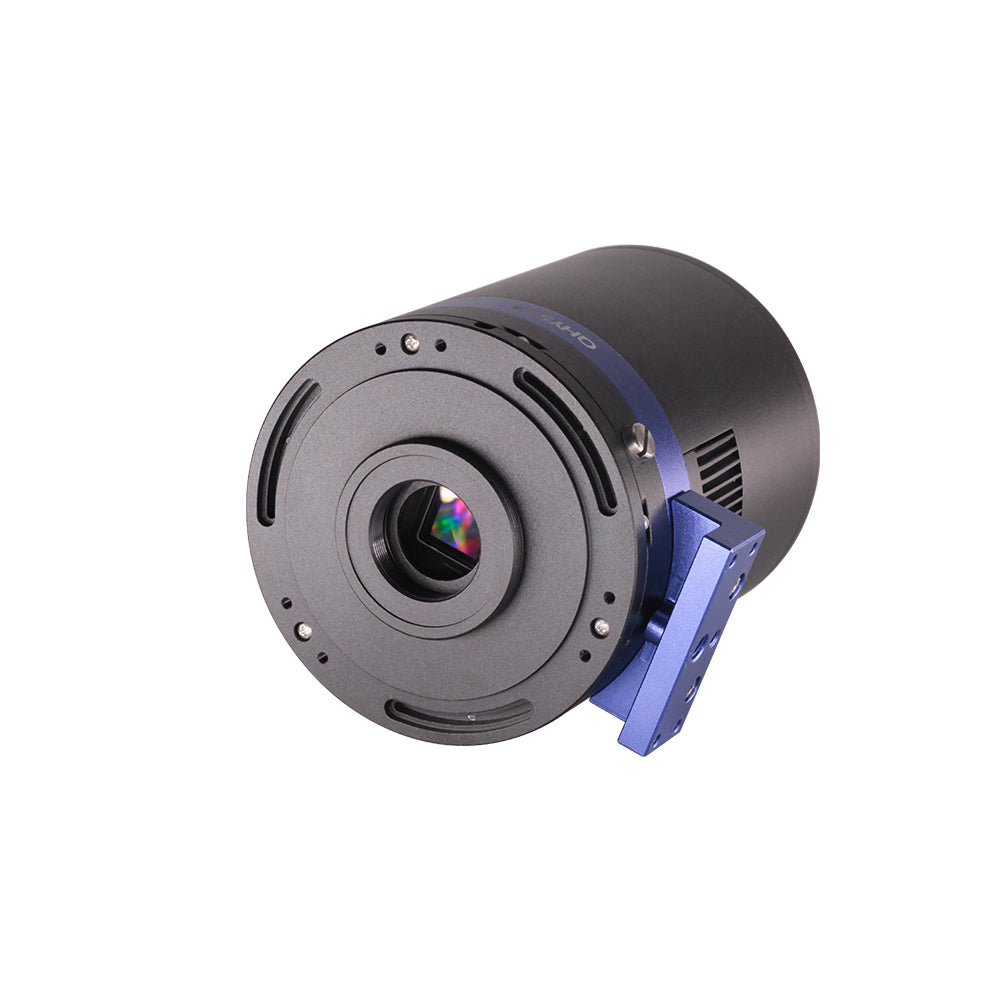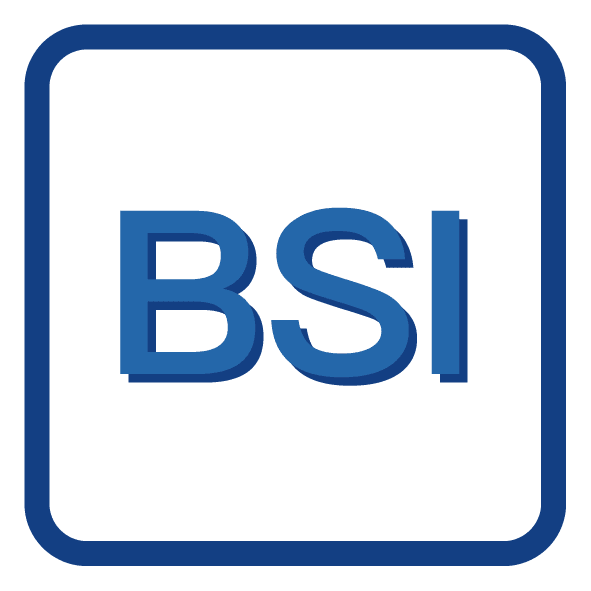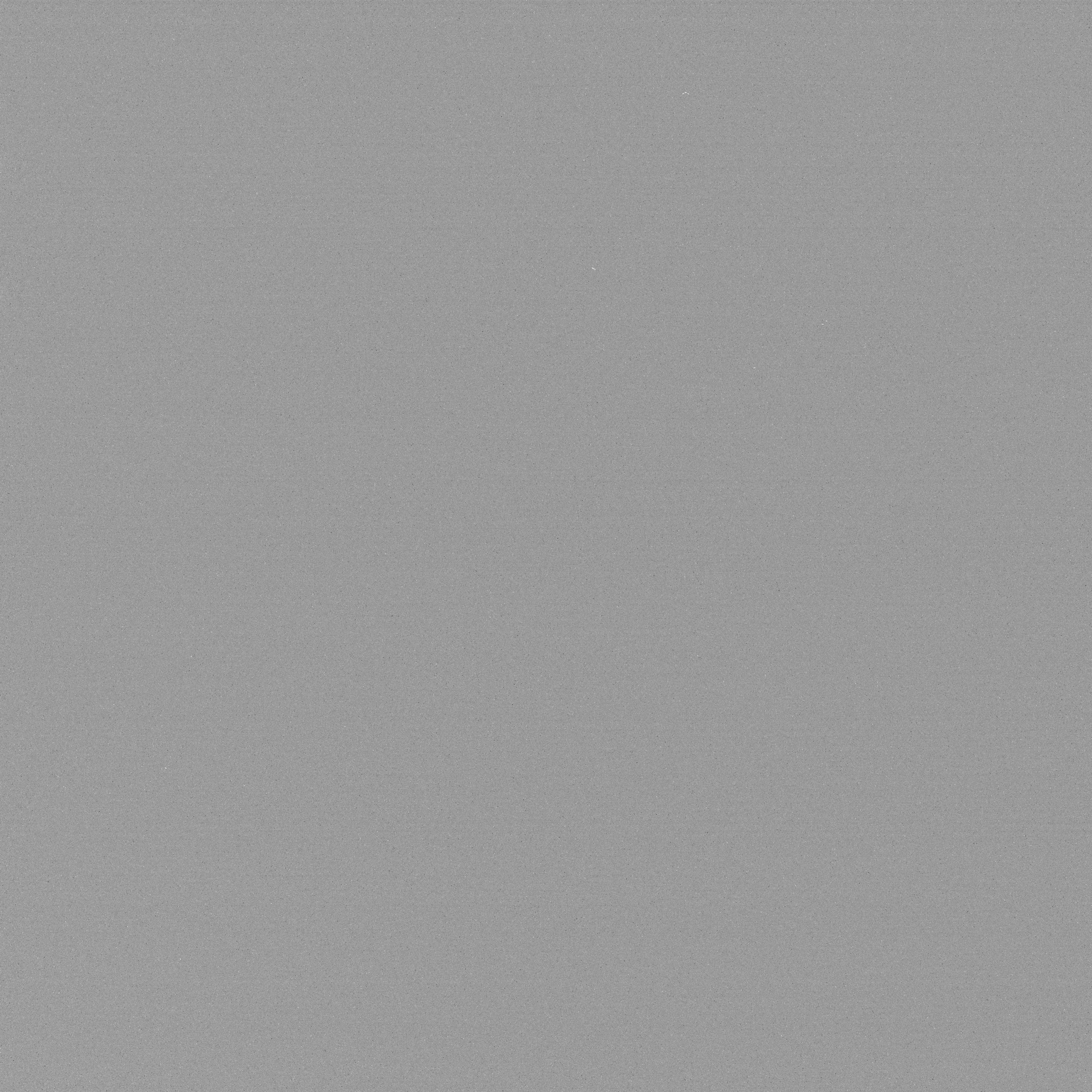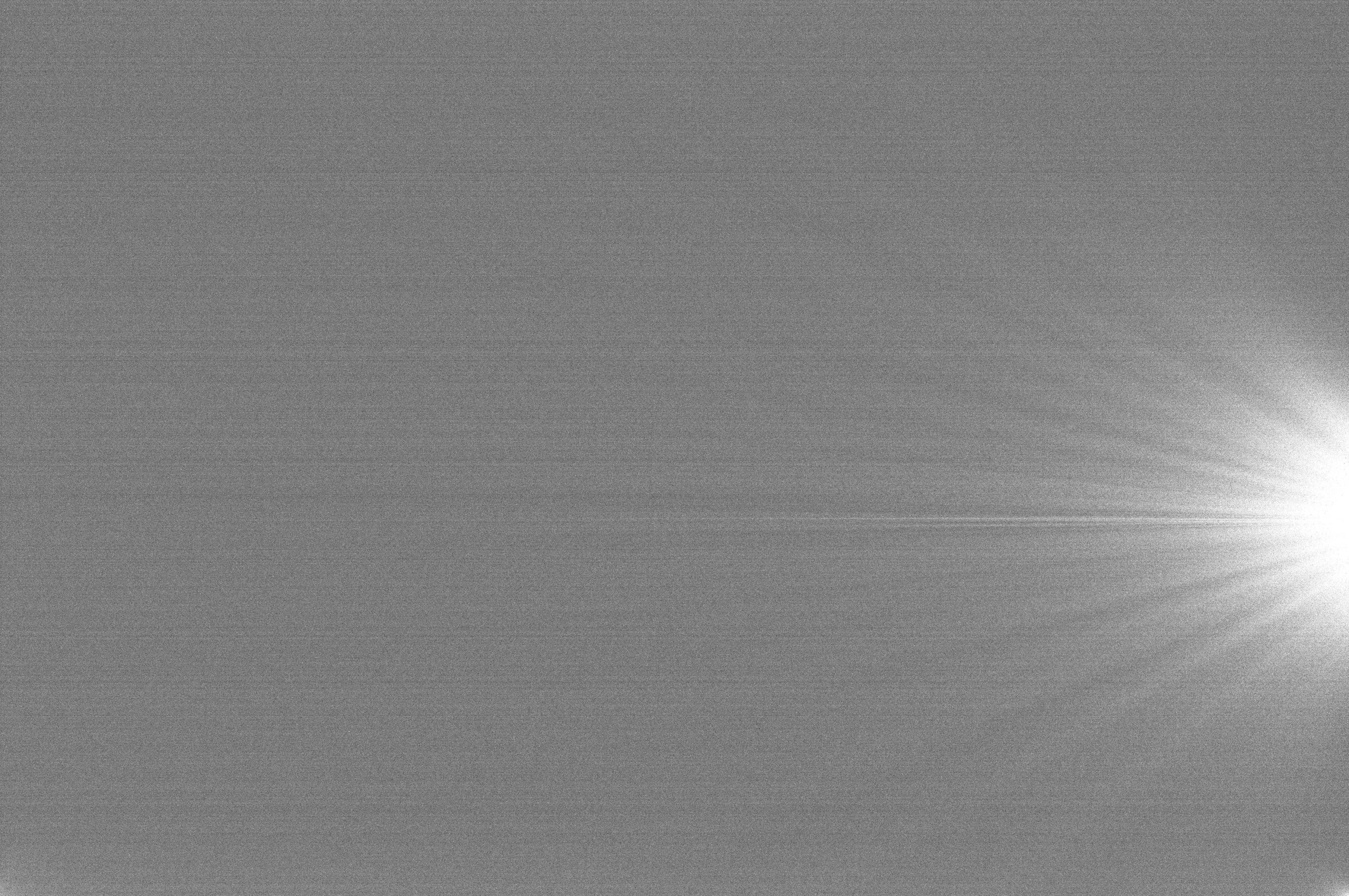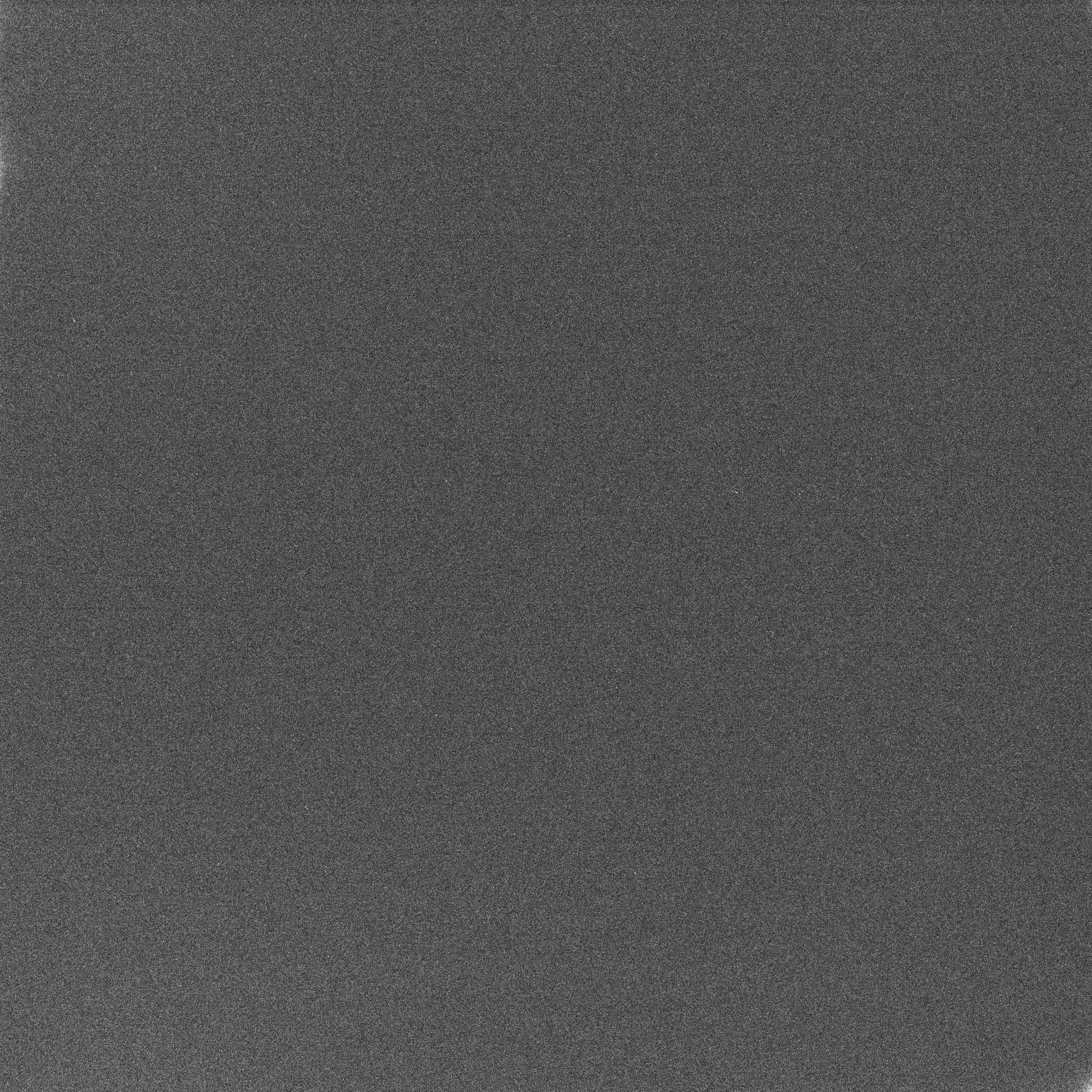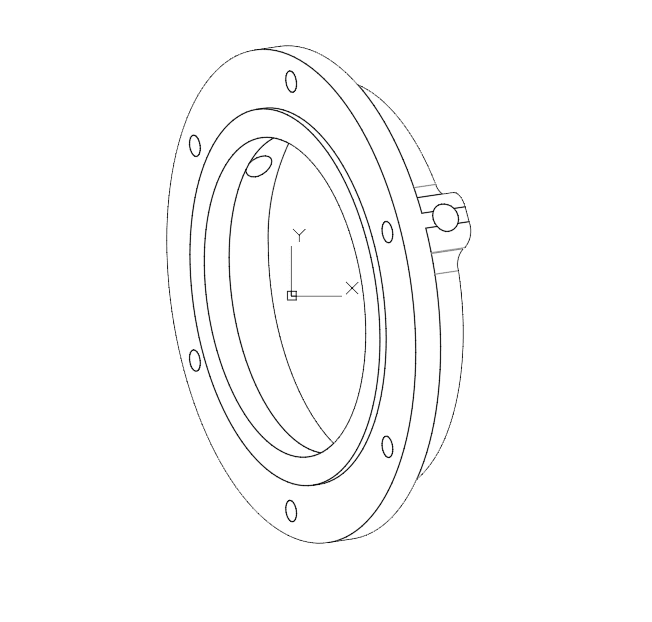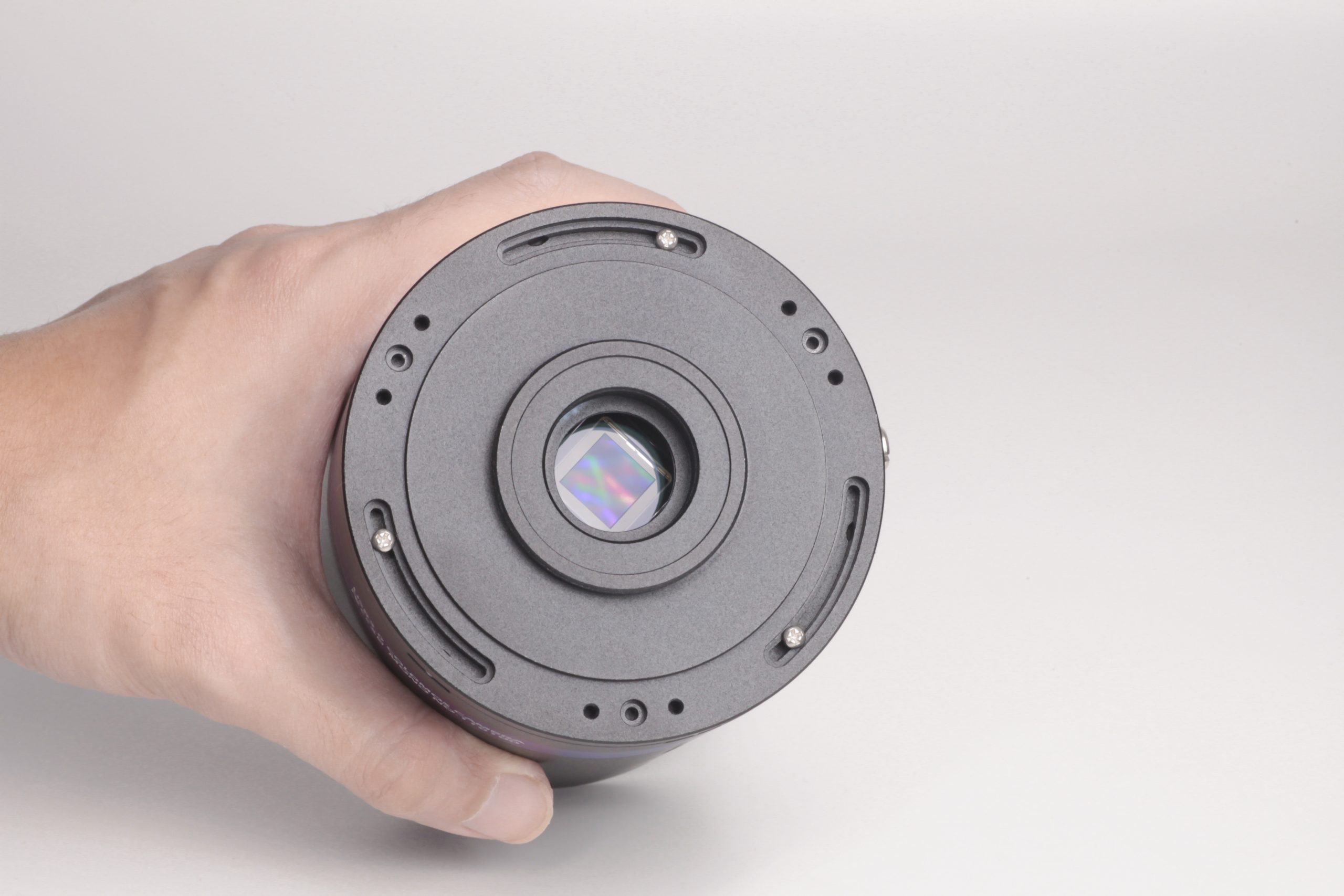QHY533 M/C
QHY533 M/C
Couldn't load pickup availability
The QHY533M and QHY533C are new-generation back-illuminated CMOS cameras with 3.76μm pixels. These cameras utilize similar sensors as the flagship models QHY600 and QHY268, featuring low noise and high sensitivity. Let’s explore their features:
-
Sensor and Resolution:
- Both the QHY533M (monochrome) and QHY533C (color) use the Sony IMX533 CMOS sensor.
- The sensor has a resolution of 9 megapixels (3003 x 3003 pixels) with a pixel size of 3.76μm.
- The back-illuminated structure of the sensor allows more incoming photons to strike the photosensitive layer, resulting in higher quantum efficiency and sensitivity to dim objects in the night sky.
-
True RAW Data:
- Unlike some cameras that apply noise reduction or hot pixel removal to their RAW output, the QHY533 cameras provide true RAW image output.
- This means the image comprises only the original signal, maintaining maximum flexibility for post-acquisition astronomical image processing and other scientific imaging applications.
-
Anti-Dew Technology:
- The QHY533 cameras implement fully dew control solutions.
- The optic window has a built-in dew heater, and the chamber is protected from internal humidity condensation.
- An electric heating board prevents dew formation, ensuring optimal performance even in challenging conditions.
-
Interface Flexibility:
- The QHY533M can be directly connected to the QHYCFW3S-SR filter wheel without removing any part of the filter wheel.
- Both cameras come with an additional adapter for tripod interfaces, making them easier to use with DSLR lenses.
In summary, the QHY533M and QHY533C combine advanced sensor technology, low noise, and efficient cooling, making them valuable tools for planetary imaging and other astronomical applications12. You can find more information about these cameras on the QHYCCD website.
One benefit of the back-illuminated CMOS structure is improved full well capacity. This is particularly helpful for sensors with small pixels. In a typical front-illuminated sensor, photons from the target entering the photosensitive layer of the sensor must first paLaboratory Equipmentss through the metal wiring that is embedded just above the photosensitive layer. The wiring structure reflects some of the photons and reduces the efficiency of the sensor.
In the back- illuminated sensor the light is allowed to enter the photosensitive surface from the reverse side. In this case the sensor’s embedded wiring structure is below the photosensitive layer. As a result, more incoming photons strike the photosensitive layer and more electrons are generated and captured in the pixel well. This ratio of photon to electron production is called quantum efficiency. The higher the quantum efficiency the more efficient the sensor is at converting photons to electrons and hence the more sensitive the sensor is to capturing an image of something dim.
In the DSLR implementation there is a RAW image output, but typically it is not completely RAW. Some evidence of noise reduction and hot pixel removal is still visible on close inspection. This can have a negative effect on the image for astronomy such as the “star eater” effect. However, QHY Cameras offer TRUE RAW IMAGE OUTPUT and produces an image comprised of the original signal only, thereby maintaining the maximum flexibility for post-acquisition astronomical image processing programs and other scientific imaging applications.
Based on almost 20-year cooled camera design experience, The QHY cooled camera has implemented the fully dew control solutions. The optic window has built-in dew heater and the chamber is protected from internal humidity condensation. An electric heating board for the chamber window can prevent the formation of dew and the sensor itself is kept dry with our silicon gel tube socket design for control of humidity within the sensor chamber.
 Cooling
Cooling
In addition to dual stage TE cooling, QHYCCD implements proprietary technology in hardware to control the dark current noise.
QHY533M (mono) and 533C (color) have different interface designs to be more flexible to deal with different applications.
QHY533M can be directly connected to the QHYCFW3S-SR without removing any part of the filter wheel (like the filter container). This provides a very short back focal length and that’s easy to fix! Besides, QHY533M + QHYCFW3S-SR combination can be easily connected to a DSLR lens, with only one additional adapter (sold separately).
Both QHY533M/C comes with an additional adapter for tripod interface. This makes it easier to shoot with DSLR lens.
A free Adapter Kit E will be provided with QHY533C. The adapters can be directly connected to the 55mm BFL M48 interface MPCC, or Nikon / Canon DSLR lens (need to purchase another DSLR lens adapter). At the same time, the C-port thread can be provided with the QHY533C and you can directly mount the C-port lens.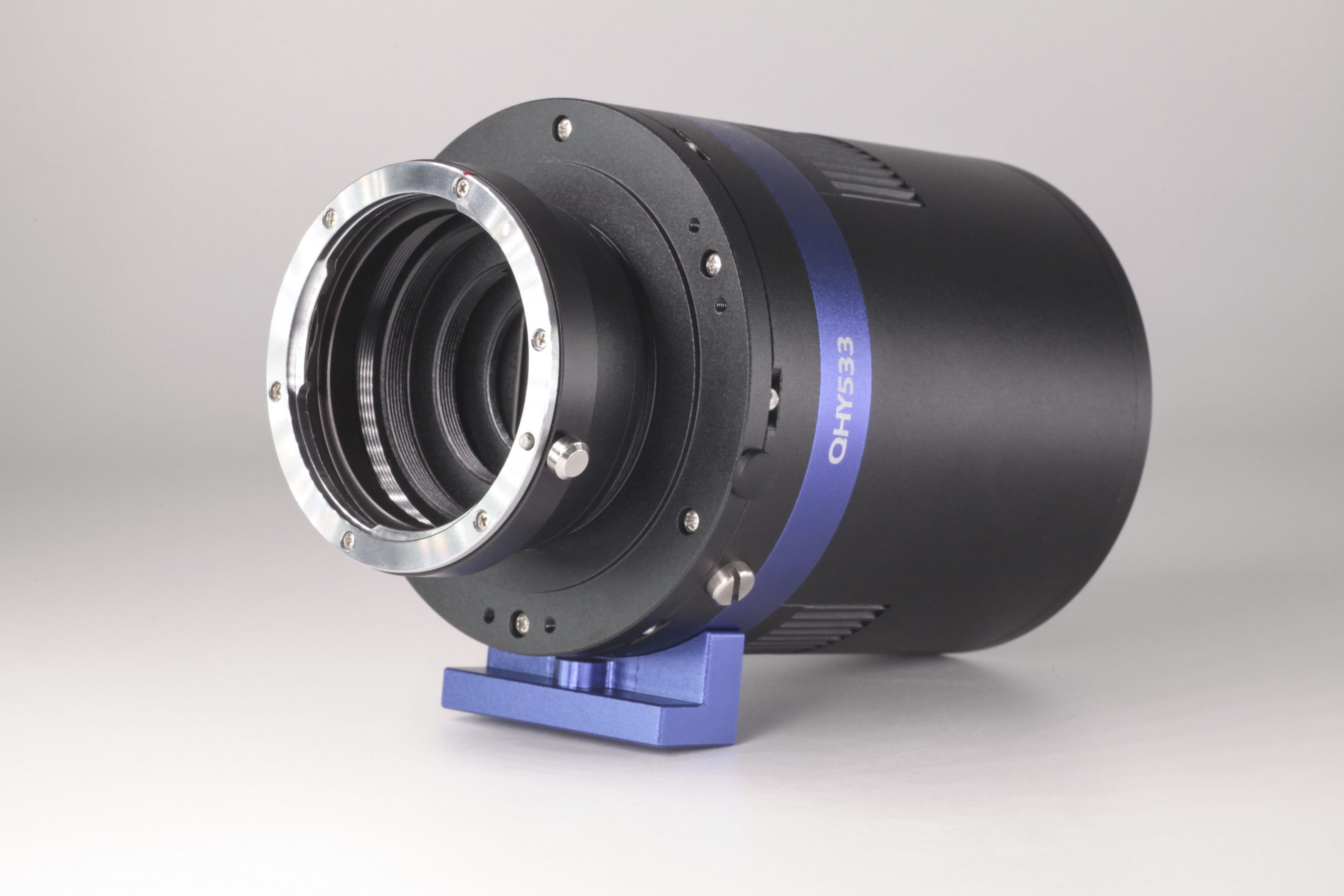
| Model | QHY533M | QHY533C |
| COMS Sensor | SONY IMX533 M | SONY IMX533 C |
| Mono/Color | Mono | Color |
| FSI/BSI | BSI | |
| Pixel Size | 3.76um x 3.76um | |
| Effective Pixel Area | 3008*3028 (includes the optically black area and overscan area) | |
| Effective Pixels | 9MP | |
| Sensor Size | 1 inch | |
| A/D Sample Depth
|
Native 14-bit A/D | |
| Full Well Capacity (1×1, 2×2, 3×3) | 58ke- | |
| Full Frame Rate | USB3.0 Port: Full Resolution 26.5FPS @8BIT 20FPS @16BIT2160Lines 37FPS @8BIT 28.5FPS@16BIT1080Lines 71.5FPS @8BIT 55FPS @16BIT768Lines 97FPS @8BIT 76FPS @16BIT480Lines 152FPS @8BIT 117FPS @16BIT240Lines 280FPS @8BIT 215FPS@16BIT |
|
| Readout Noise | 1.3 to 3.4e- | |
| Dark Current | -20C,0.0005e- /pixel/sec | |
| Exposure Time Range | 30us-3600sec | |
| Unity Gain | 68 | |
| Shutter Type | Electronic Shutter | |
| Computer Interface | USB3.0 | |
| Built-in Image Buffer | 1GByte DDR3 Memory | |
| Cooling System | Two-stage TEC cooler
Less than 1S lower than ambient temperature -30C in continuous mode More than 1S continuous mode or lower than ambient temperature -35C in single frame mode (Test temperature +20°) |
|
| Optic Window Type | AR+AR High Quality Multi-Layer Anti-Reflection Coating | |
| Anti-Dew Heater | Yes | |
| Telescope Interface | – | Support M48 (with adapter) |
| Back Focal Length | Actual Back Focal Consumed: 14 mm (Combined with CFW)
Standard BFL: 17.5mm(±0.5) |
17mm |
| Weight | 845g | 845g |
Share
